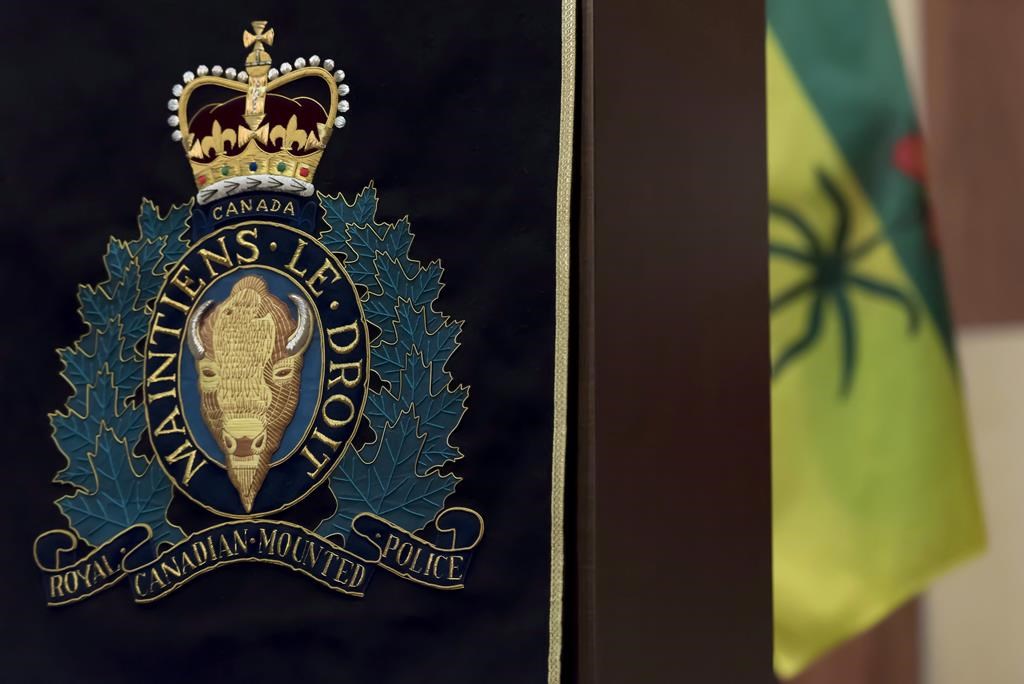Updating RCMP ‘militaristic’ training is long overdue, experts say

Posted April 22, 2023 9:00 am.
Last Updated April 22, 2023 9:14 am.
Scott Blandford considered attending the RCMP Academy when he was looking to become a police officer about 40 years ago, but he soon realized the training centre in Regina wasn’t for him.
Blandford said he remembered the academy, also known as Depot, having a “militaristic” culture that he wanted to avoid.
“It was essentially military boot camp,” said Blandford, now an assistant professor and program coordinator in policing and public safety at Wilfrid Laurier University.
“It was a training facility that was very built around where everything was geared toward developing the culture of the RCMP, marching and discipline.”
Blandford instead opted to attend the Ontario Police College, later graduating and becoming a police officer for 30 years.
While the college had some militaristic components, he said it didn’t appear to be as “in your face” as Depot.
“From everything I’ve seen and experienced, and I currently have students that have gone through that model at Depot, they haven’t changed to a great extent,” Blanford said in a recent interview.
“They’ve made adaptations, but it’s still very much in a mentality where it’s our way or you’re out.”
The Depot in Saskatchewan’s capital has been under the microscope since the release of the Mass Casualty Commission’s final report into a shooting in Nova Scotia in 2020 that left 22 people dead, including two Mounties.
The report recommends RCMP phase out the Depot by 2032 for a new model that would see the establishment of three-year policing degree programs.
It suggested a higher level of education would better prepare recruits for “the increasingly complex, social, legal and technological environment in which they work.”
The Depot on average brings in about 1,200 cadets each year, training them for six months before the majority leave to be posted in a community, where they then receive six months of field coaching.
The report notes Depot has historically recruited “very young men and women” out of high school. RCMP can hire new recruits as young as 19.
“Too many aspects of the training at Depot reinforce an outdated traditional paramilitary culture,” stated report writers Chris Murphy, a retired sociology professor at Dalhousie University and University of King’s College, and Cal Corley, a former assistant commissioner of the RCMP.
“This reinforces the internal organizational culture of the RCMP and exacerbates its separation from the community.”
Blandford said militaristic styles create single-mindedness and don’t allow for free critical thinking, resulting in a culture that’s bureaucratic.
He said he has also seen cases where charges have been dismissed because an officer was not able to articulate the evidence they had.
“Strong writing skills come from university or post-secondary education. They don’t come from police colleges. That’s not a strong suit,” Blandford said.
But it’s not the first time training at Depot has been called into question.
Training at the Depot contributes to a toxic culture
In the report, the commission cited findings from the November 2020 Broken Dreams Broken Lives report that analyzed the effects of sexual harassment on female Mounties.
The 2020 report said the Depot “is to break a cadet down and rebuild her in the RCMP mould.”
It also noted there had been “a significant amount of sexualized conduct, drinking and abusive relationships between instructors and cadets.”
Michel Bastarache, a former Supreme Court of Canada judge, said in the report that the nature of training cadets receive at Depot contributes to a toxic culture in the RCMP.
“In my view, it is time to revisit the approach of the training given to cadets at Depot and consider whether it is appropriate in a modern policing context,” Bastarache wrote.
Since the 2020 report, the RCMP has said it’s committed to cultural change to build a “healthy, diverse and professional workforce.”
The force also said in 2020 it would review and modernize training over the long term, including an assessment of how “military aspects” of Depot affect the training environment, curriculum and organizational culture.
In a statement in March, RCMP said it has put in place a team to study the report and recommendations. It is also to create an “action plan” and publicly report progress.
Provincial and municipal leaders oppose academy closure
While phasing out Depot for a new educational model could better prepare recruits, provincial and municipal leaders in Saskatchewan don’t want to see the training facility closed down.
It has operated in Regina for nearly 140 years and has been a source of heritage, employment and tourism.
Earlier this month, Saskatchewan legislators unanimously passed a motion to oppose the closure of Depot.
Opposition NDP Leader Carla Beck, the member for Regina Lakeview who spearheaded the motion, has said while she welcomes changes to police training, the academy’s closure would result in a loss of 500 jobs.
She said the RCMP could partner with the University of Regina and its federated college, First Nations University of Canada. Both are in the city and the University of Regina already offers a degree in police studies.
“My message to the federal government is this: let’s find a way to fix RCMP training and make them the police force that we need in the 21st century, but closing Depot is a non-starter,” Beck has said.
Prime Minister Justin Trudeau has acknowledged the training facility is important for the local economy but hasn’t made any commitments.
Blandford said he could see a future where the Depot becomes part of a network of campuses offering the new programming.
Meanwhile, the commission recommended one campus be located in the Atlantic region and one in Northern Canada. These campuses would likely be affiliated with existing universities and colleges, it said, adding the Canadian Police College should be integrated into this system.
Blandford suggested that Regina could become home to a western Canadian police college.
“Therefore, you’re not shutting it down completely. You’re just adapting and changing what its mandate is.”
Police moving toward more holistic models
Joe Couto, the director of government relations and communications at the Ontario Association of Chiefs of Police, said police are still going to need to learn basic law enforcement, but suggested more critical thinking skills should be incorporated when it comes to addressing mental health, human rights and community policing.
He said police are moving toward more holistic models, but not quickly enough.
“(Officers) deal with mental health issues, because there’s nobody around at 2 a.m. to do that,” he said.
The report recommended RCMP look to the Finnish policing model, which it said offers a three-year bachelor’s degree and carefully selects students through several psychological tests and interviews.
It said public trust in police in Finland is “highest in the world” because officers are educated extensively. They are also trained to bring calmness into situations and can only use a minimum amount of force when there is no other alternative.
“We definitely do not want, as an example, Rambos, Rockys,” Kimmo Himberg, the former rector of the Finnish Police University College, wrote in the report.
“We want young people who are able to take initiative, make independent decisions, who have the characteristics for this so that we can build the education on those characteristics.”








